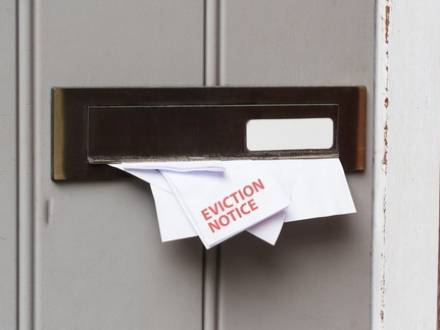Understanding the Maryland Eviction Process
 Renting your property can be financially rewarding, yet it is not without its headaches. Sometimes when your tenant fails to abide by the obligations of the lease, one of these headaches can be having to evict. In order to protect your property and financial rights, it is important to understand the reasons why you may evict a tenant in Maryland as well as the eviction process. To get personalized advice on this topic, you can turn to an experienced Maryland property dispute attorney.
Renting your property can be financially rewarding, yet it is not without its headaches. Sometimes when your tenant fails to abide by the obligations of the lease, one of these headaches can be having to evict. In order to protect your property and financial rights, it is important to understand the reasons why you may evict a tenant in Maryland as well as the eviction process. To get personalized advice on this topic, you can turn to an experienced Maryland property dispute attorney.
Why Can You Evict a Tenant?
The most common reason why landlords need to evict tenants is for nonpayment of rent. In Maryland, you can also evict a tenant for violating certain terms of the lease. For example, if the lease term has expired but the tenant remains on the property, or if the tenant is a danger to themselves or the property, you may be able to evict the tenant.
You may not evict a tenant in retaliation for any action the tenant took against you such as filing a suit against you, complaining about you or about the home’s condition, calling emergency services, or participating in a tenants’ rights organization. You may also not evict a tenant without going through the official legal eviction process.
What is the Maryland Eviction Process?
Serve Tenant with Notice
The first and crucial step to evict a tenant is to serve the tenant with notice that there is an issue. The notice period varies from ten to thirty days. Depending on the type of issue, you may have to specify in this notice that you give the tenant an opportunity to "cure" or fix the issue. For example, if the tenant has not paid the rent, you must give them ten days to either pay the rent or leave the premises.
File Eviction Lawsuit
If you gave the proper notice and followed the requirements of the notice laws, you may then file an eviction lawsuit with the court.
Attend Hearing
The court will hold a hearing with you and the tenant (and your attorneys) in which you both will make your case to the court.
Court Issues Judgement
The court will usually issue a judgment on the same day as the hearing. If it is in your favor, the court will usually issue an order that the property can be returned to your possession and the tenant must leave the property within four days.
Tenant Either Moves Out or Appeals
During these four days, the tenant must either move out or appeal. If the dispute centers on nonpayment of rent, they can also pay the rent during these four days, plus the costs of the lawsuit, to settle the complaint.
Court Issues Warrant to Evict
If the tenant does none of the above within four days, the court may issue a warrant to evict the tenant from the property.
Call a Rockville, MD Real Estate Attorney for Landlords
With all the benefits of property ownership, property disputes can arise. When they do, it is important to get trusted legal advice. The experienced Montgomery Village, MD eviction attorneys at Salvado Law Offices can provide that advice in order to ensure that you preserve your rights. Our attorneys are available for a consultation by calling the office at 301-933-1814.











